Most people think of antifreeze and coolant as interchangeable things. The reality is there’s a difference, even though it might be small, and knowing what it is will only help you as a car owner.
What is Antifreeze?
 Antifreeze is normally made of propylene glycol or ethylene glycol. Like the name indicates, it doesn’t freeze easily. And unlike water, it doesn’t boil easily. Overheating engines can literally melt, so using antifreeze is essential.
Antifreeze is normally made of propylene glycol or ethylene glycol. Like the name indicates, it doesn’t freeze easily. And unlike water, it doesn’t boil easily. Overheating engines can literally melt, so using antifreeze is essential.
You get another benefit from antifreeze: it naturally protects against corrosion, like rust. That’s great news for all those metal parts the liquid runs over. So it’s a protector against overheating, freezing and corrosion, making it an essential thing for your car.
What is Coolant?
Coolant is antifreeze with water added into it. You can get coolant that’s 70 percent antifreeze and 30 percent water, or a mixture that’s half and half. Your vehicle manufacturer likely recommends one or the other. Of course, you get more corrosion protection with the higher concentration of antifreeze. Adding water actually lowers the freezing point of the mixture.
Without coolant, your car would overheat easily in the summer and have trouble starting in the dead of winter. It should go without saying that you need to ensure your car has enough coolant, or you will suffer from these problems.
Interestingly enough, one of the early signs in the winter that your coolant level has fallen is that the heater stops working, because it actually is fed by the cooling system. In the summer, you’ll notice the temperature gauge climbing higher than normal, indicating you have a problem.
You might be wondering where to buy coolant. It’s available at many big box stores, auto parts centers and dealership parts departments. Coolant can come as a green, purple or orange liquid. Always check the recommended color for your vehicle, which is printed in the owner’s manual, or you potentially risk serious mechanical damage.
Coolant Maintenance Tips
 You really should be checking the coolant level in your car at least once a month, along with the other liquids. Modern vehicles come with an overflow reservoir for the cooling system, where coolant flows into and out of as a way to release heat.
You really should be checking the coolant level in your car at least once a month, along with the other liquids. Modern vehicles come with an overflow reservoir for the cooling system, where coolant flows into and out of as a way to release heat.
After you’ve been running the vehicle and reached the normal operating temperature, check the level using the markings on the side of the reservoir. The coolant should be somewhere between the minimum and maximum lines. If it’s below the minimum, you need to fill it back up close to the maximum level.
Periodically, you need to flush the old coolant out of your car. Over time the liquid loses its ability to keep the engine at an ideal temperature. Flushing it out and replacing the coolant with a new batch is the solution. This will also get rid of deposits which have built up in your radiator over time, which also boosts performance. While you certainly can flush the coolant system yourself, it can be a messy job and you’ll have to dispose of the old coolant properly.
Coolant and Antifreeze Safety Tips
Now that you know the difference between antifreeze and coolant, you might be ready to open up the hood on your car and get to work. But first, consider these safety tips.
Long ago, your only option for adding coolant to a car was by opening up the radiator cap. This is especially dangerous if your car is even slightly hot. There are always warnings printed on radiator caps to remind you of the risk.
Some coolant overflow reservoirs are pressurized, so you have to be careful opening them. Others aren’t and so you can open them at any time without risk. Always follow the warnings printed on all caps and containers in the engine compartment, otherwise you risk serious injury. With pressurized systems, it can be somewhat like opening a carbonated drink that’s been shook up first, so go slow and be careful.
Also, be careful how you store coolant and antifreeze. They are poisonous materials, so kids and animals can become sick or even die from consuming them. Don’t leave them within reach of young kids. If your bottles of coolant or antifreeze are leaking, it is best to dispose of them.
T3 Atlanta
If you have any doubts about adding coolant to your car, have a professional do it for you. It’s not worth the risk of having extremely hot liquid spew out onto your bare skin. That being said, if you’re cautious and follow directions, it’s completely doable for the average person.
At T3 Atlanta, our technicians know vehicle coolant systems well. We can help you maintain yours, so you don’t have to deal with big problems that will leave you stranded or cause serious mechanical problems.
 The biggest thing you need to contend with during the winter here is ice. Driving on ice safely is possible, but you need to be prepared and armed with solid information. First, realize you cannot stop quickly, so speed up and slow down gradually. You should also go under the speed limit, which was set with dry conditions in mind.
The biggest thing you need to contend with during the winter here is ice. Driving on ice safely is possible, but you need to be prepared and armed with solid information. First, realize you cannot stop quickly, so speed up and slow down gradually. You should also go under the speed limit, which was set with dry conditions in mind. If you have to go out, always plan on trips taking longer. This means you should leave sooner so you’re not tempted to speed.
If you have to go out, always plan on trips taking longer. This means you should leave sooner so you’re not tempted to speed.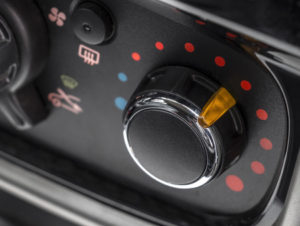 The hot air you feel blowing through the air vents originates in something called the heater core. It’s basically like a small radiator embedded under the dash. Hot coolant is transported from the engine to the heater core, where a fan helps extract some of the heat, blowing it into the cabin. This is why people say if your engine is overheating, you should roll down the windows and turn the heater all the way to full blast.
The hot air you feel blowing through the air vents originates in something called the heater core. It’s basically like a small radiator embedded under the dash. Hot coolant is transported from the engine to the heater core, where a fan helps extract some of the heat, blowing it into the cabin. This is why people say if your engine is overheating, you should roll down the windows and turn the heater all the way to full blast. Your car’s heater system also affects the defroster. Vents aimed at the windshield (and on some models the back window) blow hot air directly onto the glass. Their purpose is to remove any fog, snow, or ice buildup. Without the defroster, you might have a hard time seeing, especially at night.
Your car’s heater system also affects the defroster. Vents aimed at the windshield (and on some models the back window) blow hot air directly onto the glass. Their purpose is to remove any fog, snow, or ice buildup. Without the defroster, you might have a hard time seeing, especially at night. You might be considering a plug-in heater for your car instead of repairing problems with the built-in heater. One factor to consider is that plug-in heater can put an extra drain on your car’s battery during the time of the year when cold weather puts a strain on them. You’ll also need to find a spot to place the plug-in heater, which can be tricky depending on the car’s interior layout.
You might be considering a plug-in heater for your car instead of repairing problems with the built-in heater. One factor to consider is that plug-in heater can put an extra drain on your car’s battery during the time of the year when cold weather puts a strain on them. You’ll also need to find a spot to place the plug-in heater, which can be tricky depending on the car’s interior layout.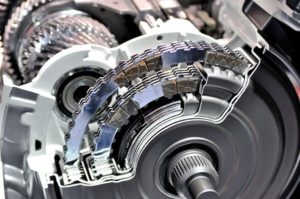 First off, you should know the transmission connects to the engine through the torque converter. It transfers the energy generated to the engine through the transmission’s gears. That energy is then sent to either two or all four wheels, which makes the vehicle move forward. The torque converter takes the place of a clutch, and it works using hydraulic pressure.
First off, you should know the transmission connects to the engine through the torque converter. It transfers the energy generated to the engine through the transmission’s gears. That energy is then sent to either two or all four wheels, which makes the vehicle move forward. The torque converter takes the place of a clutch, and it works using hydraulic pressure. Automatic transmissions often run into problems with gear changes, which can actually make transmission repair for qualified shops a little easier to manage. One of the most common is when it makes a clunking, whining or humming sound at different times. This can be caused by a variety of transmission issues which a technician can then diagnose and repair.
Automatic transmissions often run into problems with gear changes, which can actually make transmission repair for qualified shops a little easier to manage. One of the most common is when it makes a clunking, whining or humming sound at different times. This can be caused by a variety of transmission issues which a technician can then diagnose and repair.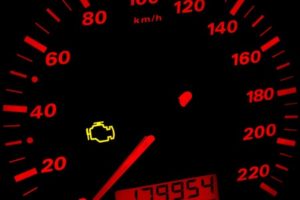 Believe it or not, another common problem with transmissions is when the check engine light comes on. The light on your dash might look like an engine or it could simply say “check engine.” Despite the name, this light doesn’t necessarily mean there’s a problem with the car’s engine. There are sensors in critical parts of your car which can measure early on if there’s a problem.
Believe it or not, another common problem with transmissions is when the check engine light comes on. The light on your dash might look like an engine or it could simply say “check engine.” Despite the name, this light doesn’t necessarily mean there’s a problem with the car’s engine. There are sensors in critical parts of your car which can measure early on if there’s a problem. The big question you always need to be asking is how to tell if you have an oil leak or not. In all honesty, some cars (especially older ones) might burn some oil. Because of that fact, you can’t just judge based on the oil level. But you should be checking the oil at least once a month, if not sooner. On vehicles with a lot of miles, checking the oil every time you fill up the fuel tank is ideal.
The big question you always need to be asking is how to tell if you have an oil leak or not. In all honesty, some cars (especially older ones) might burn some oil. Because of that fact, you can’t just judge based on the oil level. But you should be checking the oil at least once a month, if not sooner. On vehicles with a lot of miles, checking the oil every time you fill up the fuel tank is ideal.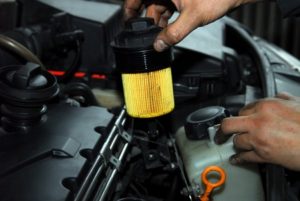 Sometimes, you may think your car is leaking oil but the problem is actually caused by oil filters that aren’t screwed on all the way. If you change your own oil, always apply some oil to the seal on the filter around the opening, and tighten it as much as possible by hand. If the filter is the source of a leak, you’ll see it’s soaked with oil just by climbing under the car. This is an easy fix.
Sometimes, you may think your car is leaking oil but the problem is actually caused by oil filters that aren’t screwed on all the way. If you change your own oil, always apply some oil to the seal on the filter around the opening, and tighten it as much as possible by hand. If the filter is the source of a leak, you’ll see it’s soaked with oil just by climbing under the car. This is an easy fix.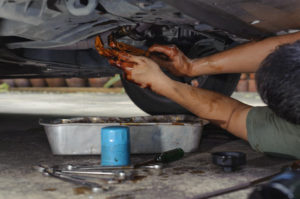 Once you’ve pinpointed the source of an engine oil leak, you can take steps to replace the faulty part that’s the source. Exactly how you go about this really depends on the component, your mechanical skills/experience and what vehicle you drive.
Once you’ve pinpointed the source of an engine oil leak, you can take steps to replace the faulty part that’s the source. Exactly how you go about this really depends on the component, your mechanical skills/experience and what vehicle you drive.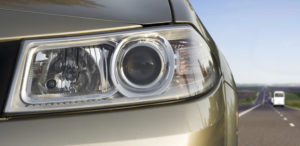 Modern car headlights feature a polycarbonate plastic lens. The material doesn’t chip or crack nearly as easily as glass, but over time it can start to turn cloudy. There’s not much you can do about preventing this because exposure to sunlight and chemicals in the air triggers the reaction.
Modern car headlights feature a polycarbonate plastic lens. The material doesn’t chip or crack nearly as easily as glass, but over time it can start to turn cloudy. There’s not much you can do about preventing this because exposure to sunlight and chemicals in the air triggers the reaction. The most common household method for cleaning foggy headlights is toothpaste, of all things. The stuff does a great job of cleaning your teeth, so why not your headlights as well? Interestingly enough, the buildup caused by oxidization on your headlight lenses is actually pretty similar to the plaque that gathers on your teeth.
The most common household method for cleaning foggy headlights is toothpaste, of all things. The stuff does a great job of cleaning your teeth, so why not your headlights as well? Interestingly enough, the buildup caused by oxidization on your headlight lenses is actually pretty similar to the plaque that gathers on your teeth.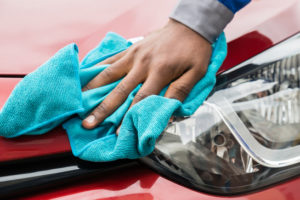 One of the most unexpected household remedies for cloudy headlights is bug spray. Funny enough, some of the chemicals that help drive away mosquitos and other pesky critters also can power through the dirt and oxidization in the plastic.
One of the most unexpected household remedies for cloudy headlights is bug spray. Funny enough, some of the chemicals that help drive away mosquitos and other pesky critters also can power through the dirt and oxidization in the plastic. Your car can sit out in all sorts of conditions, from the baking heat of the sun in the summer, to sub-freezing temperatures in the winter. These environmental factors cause the rubber wiper blades to age, cracking the rubber and even causing it to pit.
Your car can sit out in all sorts of conditions, from the baking heat of the sun in the summer, to sub-freezing temperatures in the winter. These environmental factors cause the rubber wiper blades to age, cracking the rubber and even causing it to pit. Another sign that you need to thing about replacing the windshield wipers is if they start making weird sounds. Any kind of squealing, slapping, grinding or chattering noises indicate you need to swap out the blades immediately. Ignoring these signs could cause the arms that hold the blades against the windshield to start rubbing against the glass. Considering they’re made of metal, you’re risking permanent damage to the windshield.
Another sign that you need to thing about replacing the windshield wipers is if they start making weird sounds. Any kind of squealing, slapping, grinding or chattering noises indicate you need to swap out the blades immediately. Ignoring these signs could cause the arms that hold the blades against the windshield to start rubbing against the glass. Considering they’re made of metal, you’re risking permanent damage to the windshield.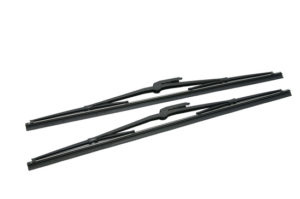 When you buy replacement windshield wipers, you absolutely must get the correct size. Stores will have guides you can use to look up the size wiper blades your vehicle needs. Take your time and make sure you’re grabbing the correct replacements, otherwise you’ll be right back at the store buying more.
When you buy replacement windshield wipers, you absolutely must get the correct size. Stores will have guides you can use to look up the size wiper blades your vehicle needs. Take your time and make sure you’re grabbing the correct replacements, otherwise you’ll be right back at the store buying more.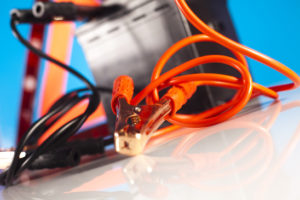 Perhaps the most obvious and common reason for a car to not start is the battery has no charge. If you don’t hear anything when you turn the key, pop the hood and inspect the terminals on the battery. Remove any corrosion you see with a steel brush or anything else you might have on hand. That corrosion alone could be keeping the electricity from flowing to the engine.
Perhaps the most obvious and common reason for a car to not start is the battery has no charge. If you don’t hear anything when you turn the key, pop the hood and inspect the terminals on the battery. Remove any corrosion you see with a steel brush or anything else you might have on hand. That corrosion alone could be keeping the electricity from flowing to the engine.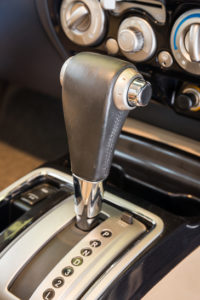 Yet another potential cause for a car to not start is if the transmission is in the wrong gear.
Yet another potential cause for a car to not start is if the transmission is in the wrong gear.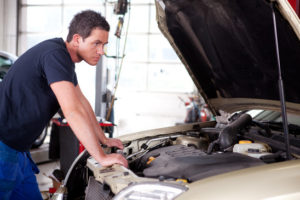 If you hear the electrical system firing, which can be a clicking sound, or the engine is struggling to start but won’t, there are a few causes you can look into. Your car could be out of gas, so turn the key enough for the gauges to turn on, and check the fuel level.
If you hear the electrical system firing, which can be a clicking sound, or the engine is struggling to start but won’t, there are a few causes you can look into. Your car could be out of gas, so turn the key enough for the gauges to turn on, and check the fuel level.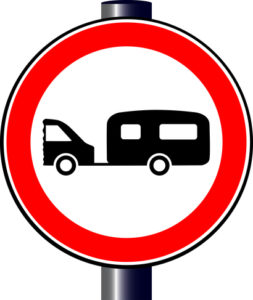 If you have something like a Rogue, do some homework before tackling the towing job. It’s best to look up the Nissan Rogue towing capacity as one of the first steps. After all, taking on a task without knowing the limits of your vehicle could easily turn into disaster.
If you have something like a Rogue, do some homework before tackling the towing job. It’s best to look up the Nissan Rogue towing capacity as one of the first steps. After all, taking on a task without knowing the limits of your vehicle could easily turn into disaster. Taking care of the trailer itself is something far too many people completely forget. Just like your vehicle, running the trailer with low or overinflated tires is just plain dangerous, especially in rainy, foggy, or dark conditions. Always check the tire pressure before setting out, adjusting it as needed. Before towing anything, perform a quick visual inspect for damage, excessive corrosion or other problems with the trailer.
Taking care of the trailer itself is something far too many people completely forget. Just like your vehicle, running the trailer with low or overinflated tires is just plain dangerous, especially in rainy, foggy, or dark conditions. Always check the tire pressure before setting out, adjusting it as needed. Before towing anything, perform a quick visual inspect for damage, excessive corrosion or other problems with the trailer. You can’t drive on the road like you aren’t towing a trailer, because doing just that will lead to problems. For starters, your compact SUV won’t handle like it normally does, thanks to the added weight from the trailer. Expect that stopping and accelerating will take significantly longer, and plan accordingly. Also, maneuvering through tight areas that otherwise wouldn’t be a challenge might not even be possible.
You can’t drive on the road like you aren’t towing a trailer, because doing just that will lead to problems. For starters, your compact SUV won’t handle like it normally does, thanks to the added weight from the trailer. Expect that stopping and accelerating will take significantly longer, and plan accordingly. Also, maneuvering through tight areas that otherwise wouldn’t be a challenge might not even be possible. Another area where Infiniti has an advantage is performance. While Nissan admittedly does have Godzilla, or the GT-R, that’s definitely the exception to the overall picture. If you want a vehicle that will thrill you each time you climb behind the wheel, or that makes you feel more connected to the road, an Infiniti is a much safer bet.
Another area where Infiniti has an advantage is performance. While Nissan admittedly does have Godzilla, or the GT-R, that’s definitely the exception to the overall picture. If you want a vehicle that will thrill you each time you climb behind the wheel, or that makes you feel more connected to the road, an Infiniti is a much safer bet. Anyone who’s a fan of cutting-edge technology should definitely go with Infiniti over Nissan. The luxury brand oftentimes gets different features long before Nissan, so owners enjoy all of the latest and greatest. This includes driver assistance systems, which are great for avoiding accidents, as well as infotainment, comfort, convenience and efficiency innovations.
Anyone who’s a fan of cutting-edge technology should definitely go with Infiniti over Nissan. The luxury brand oftentimes gets different features long before Nissan, so owners enjoy all of the latest and greatest. This includes driver assistance systems, which are great for avoiding accidents, as well as infotainment, comfort, convenience and efficiency innovations.








